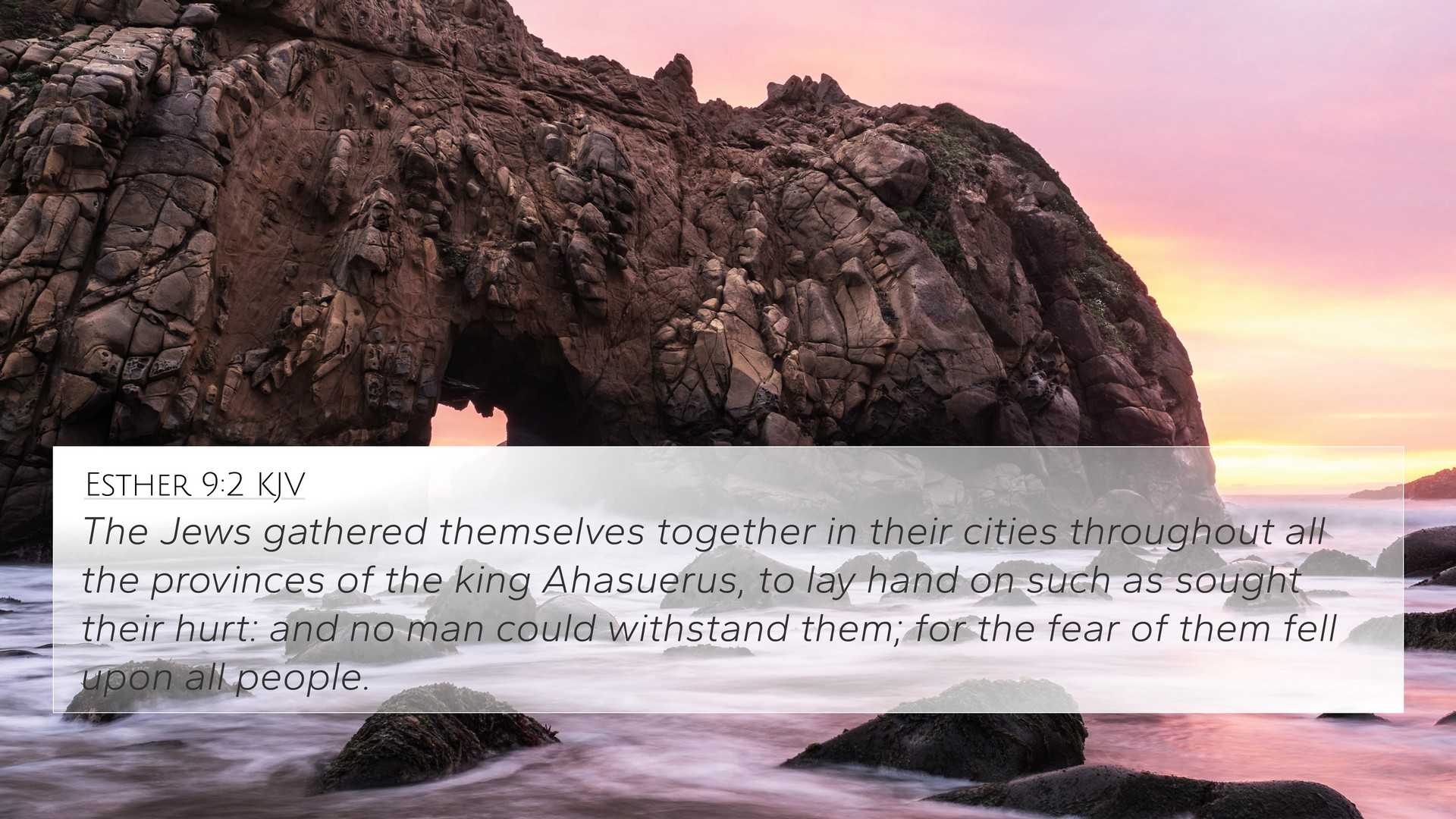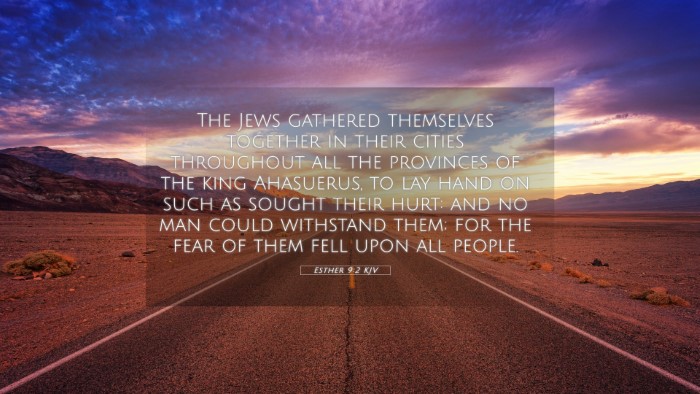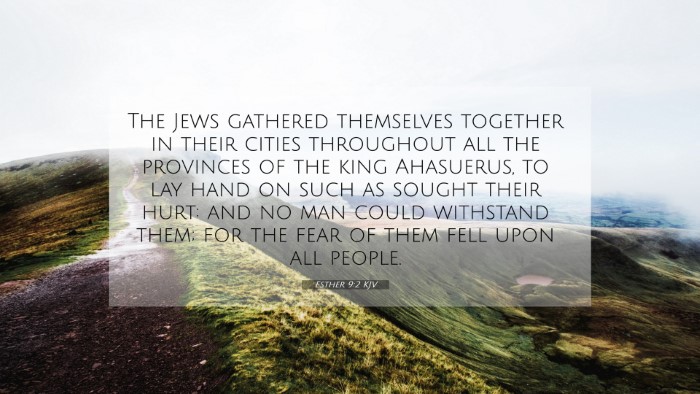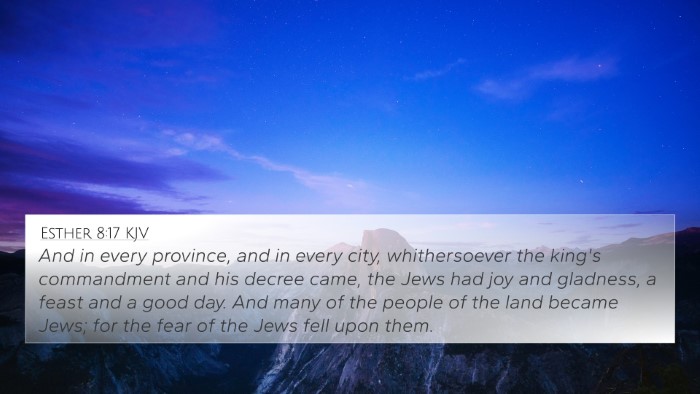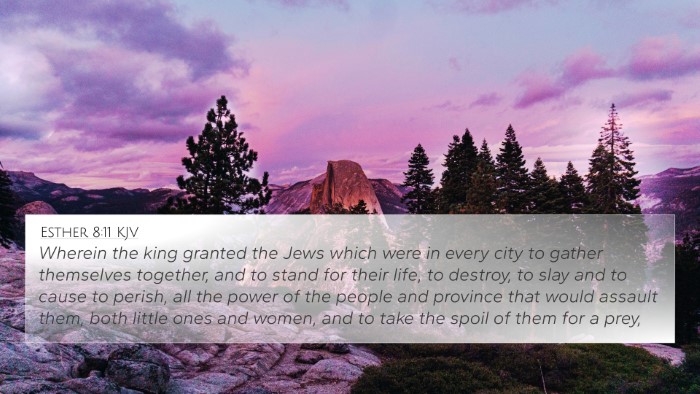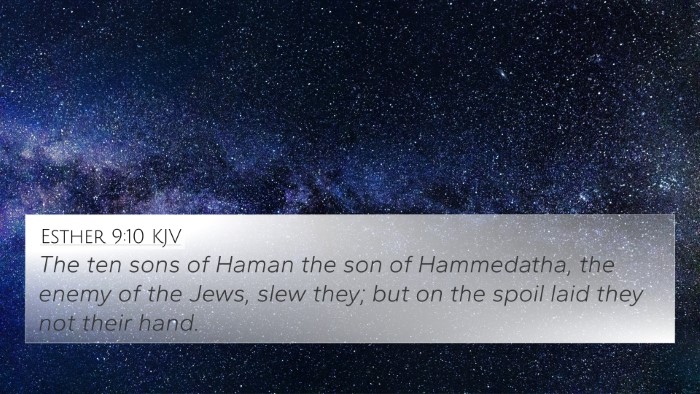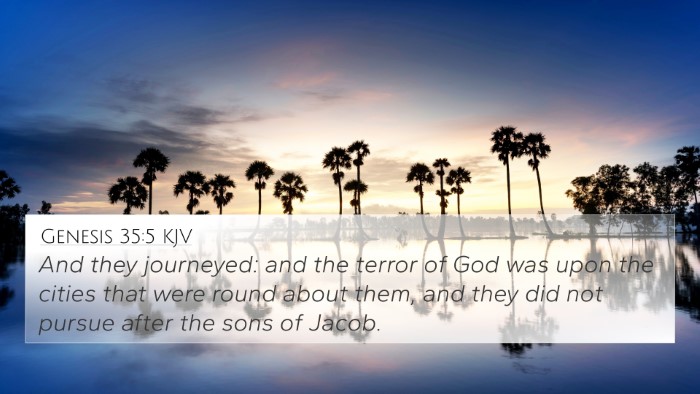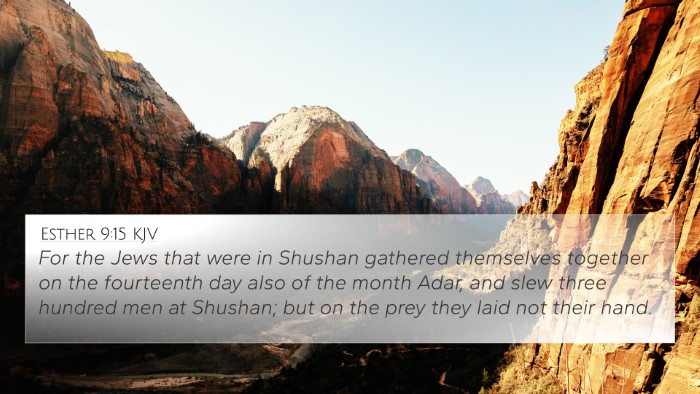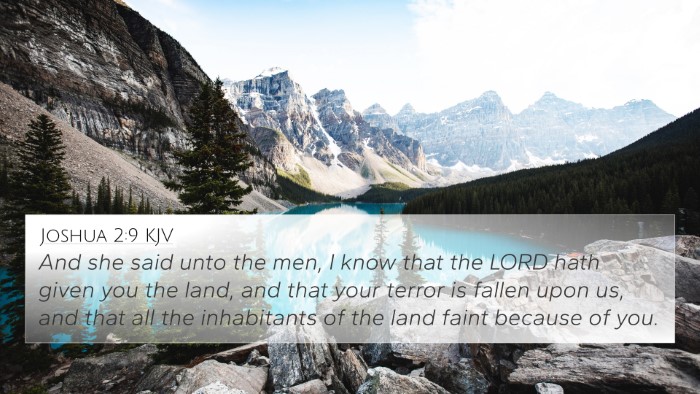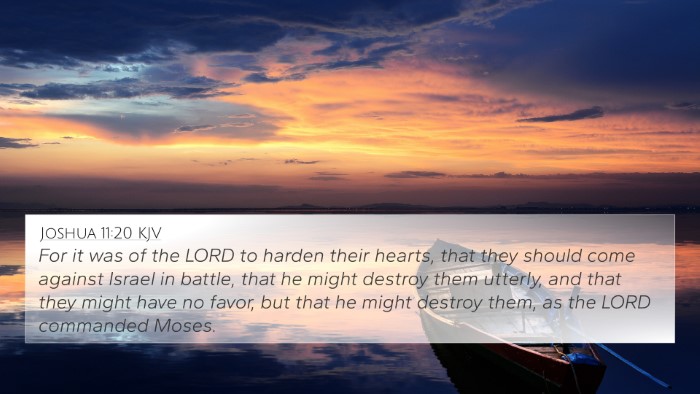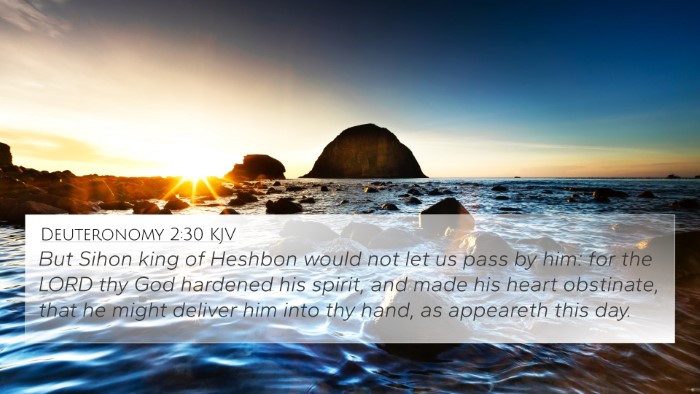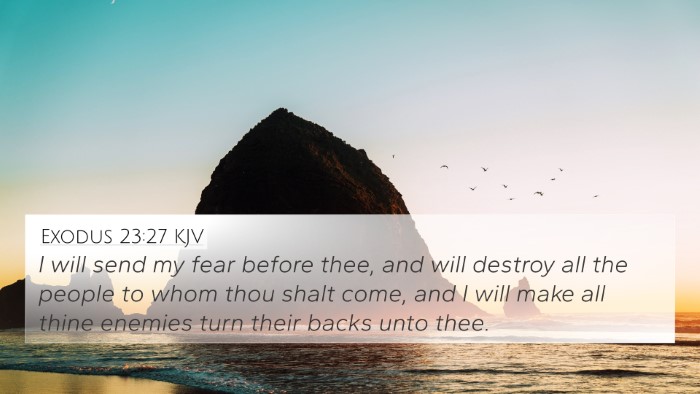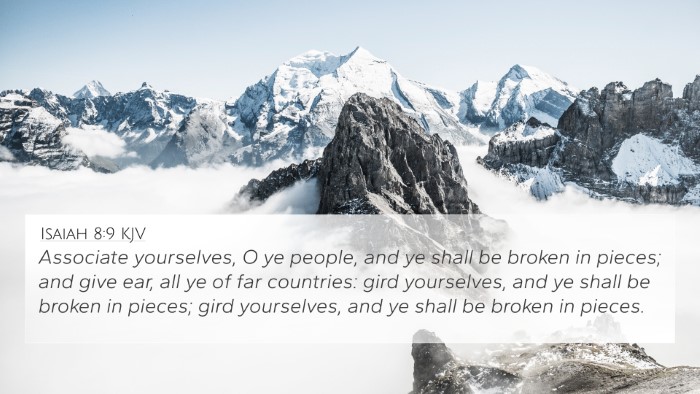Understanding Esther 9:2
Esther 9:2 states: "The Jews gathered themselves together in their cities throughout all the provinces of King Ahasuerus, to lay hand on such as sought their hurt: and no man could withstand them; for the fear of them fell upon all people." This verse encapsulates pivotal themes of unity, divine protection, and the reversal of fortunes, shedding light on the broader narrative of the Jewish people during a time of dire threat.
Contextual Background
This verse is situated in the Book of Esther, which recounts the deliverance of the Jews from a genocidal plot orchestrated by Haman. The historical context of Esther highlights the tension between the Jews and their adversaries within the Persian Empire. The tension reflects not only a physical struggle but also a spiritual battle underscored by faith and divine intervention.
Verse Analysis
The primary actions described in Esther 9:2 are significant on multiple fronts:
- The Unity of the Jewish People: The gathering of the Jews in various cities serves as a testament to their solidarity in the face of adversity. Commentary by Matthew Henry highlights how this unity is a providential fulfillment of their collective identity, wherein they recognize their kinship and mutual dependence.
- The Fear of the Jews: Adam Clarke notes that the fear instilled in their enemies was a reflection of the heightened awareness of God’s favor towards His people. This divine endorsement served to embolden the Jews while simultaneously disheartening their foes.
- The Divine Protection: The inability of the adversaries to withstand the Jews is underscored by Albert Barnes, who points out that God's protection resulted in tangible, historical outcomes where the Jews not only survived but thrived against the odds.
Thematic Connections
Esther 9:2 connects with several key themes found throughout the Scriptures:
- Deliverance: Similar to Exodus 14:13-14, where the Israelites were delivered from Egyptian bondage.
- Courage in Adversity: Common to many Psalms, particularly Psalm 27:1-3, which expresses a confidence despite adversarial circumstances.
- God’s Sovereignty: This theme resonates with Proverbs 21:30, emphasizing that no human plans can ultimately thwart God's purposes.
Related Bible Cross-References
Esther 9:2 is supported and illuminated by a variety of other verses:
- Exodus 17:8-13 - The battle against Amalek, showcasing God's power through His people's unity.
- Jeremiah 1:19 - God’s promise to protect His people against their adversaries.
- Psalm 34:7 - Assurance of divine protection surrounding those who fear Him.
- Isaiah 54:17 - "No weapon that is formed against thee shall prosper," resonating with the protective theme in Esther.
- Acts 4:29-31 - The early apostles gather in unity, facing threats but empowered by prayer and divine authority.
- Romans 8:31 - Affirmation that "if God be for us, who can be against us?" linking to divine favor as expressed in Esther.
- 1 Corinthians 15:57 - Victory through Jesus Christ as a realization of divine deliverance in the New Testament era.
Tools for Bible Cross-Referencing
For those seeking to further explore the connections present in Esther 9:2, numerous tools exist:
- Bible Concordance: A searchable index of words and phrases.
- Bible Cross-Reference Guide: Guides and commentaries that detail thematic similarities across texts.
- Bible Chain References: Systems that link verses together thematically for comprehensive study.
- Cross-Reference Bible Study Methods: Techniques to systematically uncover inter-textual connections.
Concluding Thoughts
Esther 9:2 not only provides an account of a specific historical moment but also serves as a rich tapestry woven with themes of divine protection, deliverance, and unity. For believers, it echoes the hope that, regardless of circumstances, God’s providential hand guides and guards His people, urging them to stand firm in their faith.
